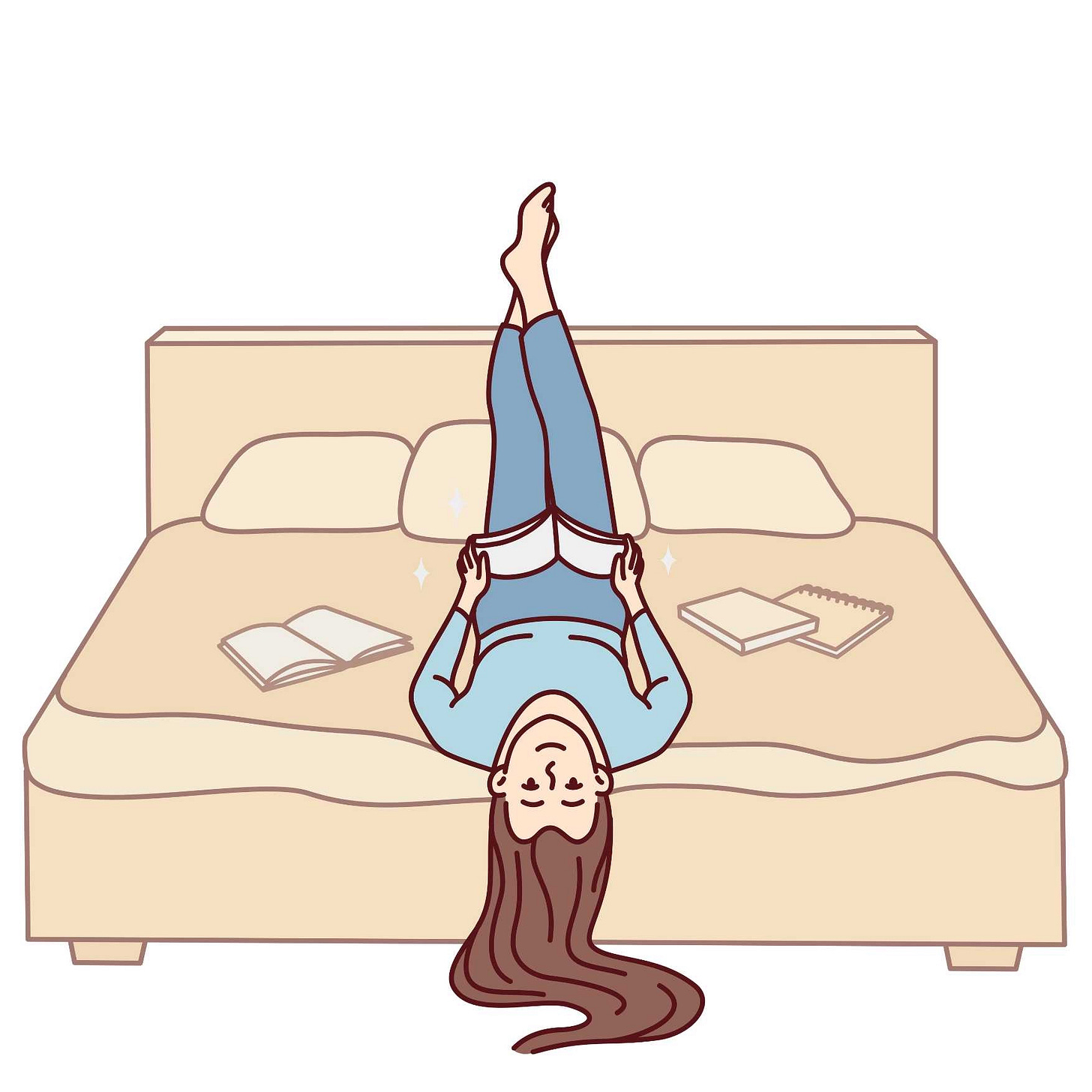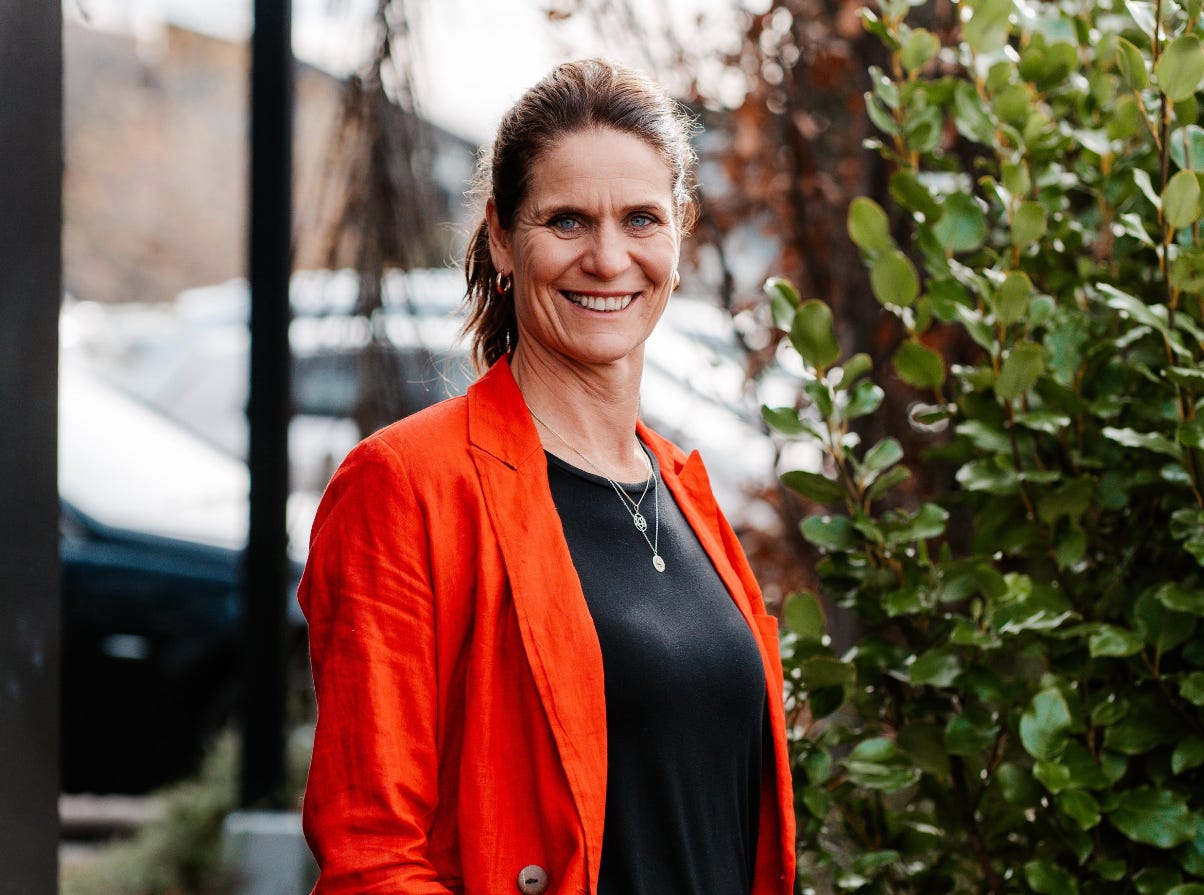2 of the 4 pillars of wellbeing
Getting more sleep and breathing well
Hello Girls,
Great to be back in the saddle, writing to you from sunny Christchurch, NZ! The spring lambs are frolicking happily, and the daffodils are beaming their cheery shades of yellow. 🌼
I've been working on my AI chatbot, Kitty—My first project using tech tools to raise awareness about our health during the post-fertility years. Kitty’s first mission is to help women advocate for themselves and navigate a doctor’s visit with confidence. Based on readers feedback, it seems some (not all) doctors can take an old fashioned approach to women's health, especially when treating the symptoms of peri and menopause. This we will try and change with some easy to use tech tools for women that you can save onto your phone. I will keep you posted !
I’m also off on holiday soon, recharging the batteries before summer. 🌞 Enjoy reading!
Donna
Sleep
As sure as I am that Kitty Foreman’s coral coloured smile eludes to a good nights rest, we keep going on and on about sleep because it’s that important. Sleep is vital for the proper functioning of so many systems—immunological, metabolic, and cognitive. Without a good night's rest, things just start going south…
At our age, disruptions to the sleep-wake cycle can come from hormonal changes (hello, menopause) or external factors like stress. During menopause, we women are twice as likely as men to suffer from sleep issues due to the effects of estrogen and progesterone fluctuations. Fun times, right?
In midlife, sleep complaints are super common. Over 50% of women aged 40-59 report insomnia or poor sleep quality, and it tends to get worse during peri menopause and post menopause. Sleep issues are often linked to hot flashes and psychological factors like anxiety and depression.
Addressing these issues means considering both our physical and emotional well-being. Prioritizing a good night’s makes a world of difference.
Here are a few tips from the OGs:
Breath work
Is a great tool to learn so you can relax before bed, and if you do wake in the night, practice breathing to get yourself back to sleep. Slow, nose breathing is a technique you can try while lying in bed. You can also try belly breathing see here.Limit alcohol
I can't seem have more than one drink these days without waking up in a hot sweat at 2 a.m. Cutting alcohol has been a game-changer for my deep sleep (and for the waistline!) Try a sleep tea before bed .Keep a cool room
If you’re like me and run hot, make sure to use natural bedding and get plenty of ventilation.Stay active and avoid heavy meals before bed
A brisk post-dinner walk followed by a warm (not hot!) helps relax the body ready for sleep.Monitor for Sleep Apnea
If you’re snoring or waking up gasping for air, PLEASE see your doctor.Limit Caffeine After 3 p.m.
Caffeine blocks adenosine, a sleep-inducing chemical. Avoiding it at least eight hours before bed can help you sleep better.Sleep habits
Ditch the screen at least an hour before bed. Screens stimulate your brain. Try a kindle or reading a good book.
Crush of the Week: Jo Hopkinson Haigh
This is Jo from Mindful Physio.
I met Jo for a coffee last week and we instantly clicked. Both of us love helping women navigate the chaos of peri and menopause and we share an interest in healthy ageing. Unlike myself, Jo IS an expert. She is a master in the art of breath work and mindfulness, as well as being a trained physiotherapist and yoga teacher. It's this unique combination that makes her techniques so effective for tackling sleep disruptions and anxiety—two of the top five menopausal complaints. Jo has shared with us some insight into breathing well.
Benefits of low, slow nose breathing – and It's free!
We talk about breath as if it's automatic—and it is—but just because we’ve been breathing all our lives doesn’t mean we’re doing it well.
Diet, exercise, sleep, and breath—all the pillars of wellbeing. You can nail the first three, but if you're not breathing properly, you're not thriving. And here’s the kicker—95% of us could be doing it better.
Modern life keeps us in an up regulated, stressed state, triggering inflammation and the whole cascade of health problems we’re familiar with. It’s like we’ve forgotten how to breathe properly.
The fix?
Low, slow, nose breathing is the way back to balance. It activates the parasympathetic nervous system, which tells your body to chill out and shift into “rest and digest” mode.
Here's how to do it:
Sit upright by sliding your butt into the back of the chair and relax your shoulders. You can also lay down on your bed.
Close your mouth, and let your tongue rest gently on the roof of your mouth, resting softly behind your front teeth. Place one hand on your belly and one on your chest.
Inhale slowly through your nose, feel your belly rise softly, as you take a slow low breath in. (This is not a big deep breath in).
Purse your lips and exhale slowly for 6 rounds of breath, feel instant calm in your body.
Transition to inhale and exhale through your nose . Continue for 10 minutes and feel the sense of calm through your body
Diaphragmatic breathing: The diaphragm’s your breathing superstar, not your lungs. When it moves properly, everything flows. But modern life—sitting all day—messes with that.
Nose breathing: Slows everything down, reduces stress hormones like cortisol, and gives you that calm, centered feeling.
Emotional awareness: When you’re stressed or angry, your breath goes haywire. Learning to control your breath during these times helps dial down the overwhelm and keeps you cool under pressure.
The best part? Learning to breathe better costs nothing.
If you’re suffering from headaches, jaw clenching, sleep issues, or anxiety, an appointment with Jo could really help OR she is presenting at a workshop next month, see details below in events.
OUR Lynne Allen, PT with Attitude
Lynne has a fab article called "Breathe Better, Move Better," where she highlights how breathing mechanics and muscle tension (especially in the lats) impact mobility and tension in other areas like the neck and shoulders. Here are the key takeaways:
Body interconnectedness: Limitations in one area (like the neck) can be traced to others, like the lats.
Role of the lats: They contribute to shoulder movement and spinal stability and become accessory breathing muscles when our main breathing muscles (like the diaphragm) are weak.
Overuse of accessory muscles: Overusing lats for breathing can limit rib cage mobility and cause neck tension.
Tight lats and movement: Tight lats can internally rotate the upper arm, limiting shoulder mobility.
Solutions: Focus on proper breathing mechanics, stretching, and rib cage mobility to reduce tension and improve movement.
Meta Trends
Meno Zone: MZ is a term coined by yours truly, for when your estrogen levels are depleting faster than a gin cocktail on a Saturday night. When you officially enter the zone…Life is somewhat confusing, you are you, but you dont feel like you.
Evil bitch face syndrome: EBFS is that uncontrollable rage that takes over when your estrogen is low, you may be a day out of sync with your patches AND you’ve had more than one nights broken sleep ( in a row).
Non-Review: Wabi Sabi by Beth Kempton
I’m not reading this book—I’m listening to the audiobook on Spotify (it’s free!). Intrigued by Japanese culture and the kindness of Japanese people, I wanted to understand their secret. Do Japanese ladies get Evil Bitch Face during menopause? Surely ?
Beth Kempton takes you on a cultural journey exploring the Japanese concept of Wabi Sabi. The book leans toward “ self-help” but it’s still an enjoyable listen to and their are some great insights into Japanese culture.
Events Christchurch : Menopause Cafe
With so much info on Dr. Google, Insta, and Facey, it’s refreshing to see a group of professionals who really know their stuff when it comes to healthy ageing and “ getting back your mojo” .
Join the Menopause Cafe Workshop in Christchurch
Details:
Led by menopause health experts, these workshops cover weight management, sleep, stress, and more, with a mix of science-backed advice and practical exercises.
Workshops run weekly from October 17th to November 7th. Tickets are $299 for the series of 4 workshops. A solid investment in your future well-being! 🌸
Enjoy the rest of your week, and remember get some sleep and breathe !










Always look forward to your writings <3